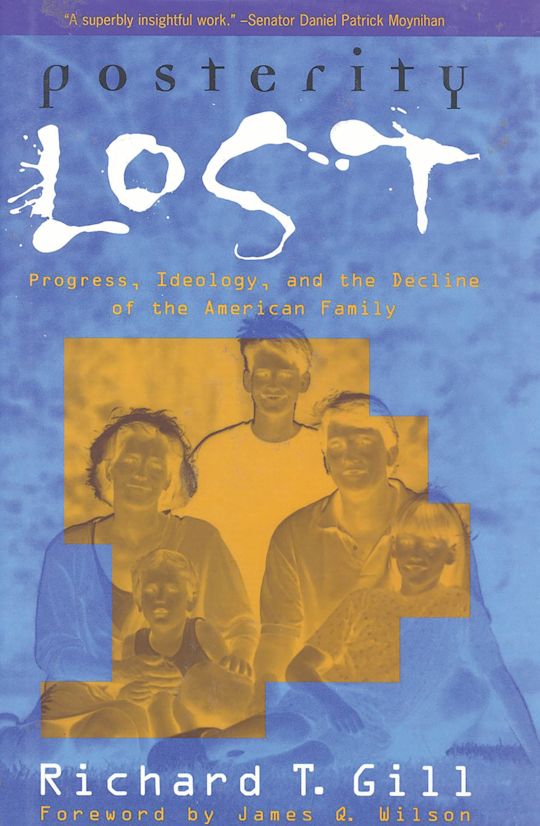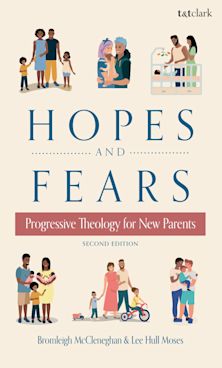- Home
- NON-FICTION
- Health & Lifestyle
- Parenthood & Family
- Posterity Lost
Posterity Lost
Progress, Ideology, and the Decline of the American Family
- Textbook
Posterity Lost
Progress, Ideology, and the Decline of the American Family
- Textbook
For information on how we process your data, read our Privacy Policy
Thank you. We will email you when this book is available to order
Buy from Bloomsbury eTextBooks
You are now leaving the Bloomsbury Publishing website. Your eBook purchase will be with our partner https://www.vitalsource.com.
Your credit card statement will show this purchase originating from VitalSource Technologies. They will also provide any technical assistance you might require.
You must sign in to add this item to your wishlist. Please sign in or create an account
Description
Has the American spirit of optimism disappeared? This original and provocative book provides a penetrating analysis of two developments which are revolutionizing late 20th century America. The decline of the American family and a waning faith in the Idea of Progress are in sharp contrast to our historic past. Richard T. Gill links these two significant developments by examining our changing attitudes to the future. Americans today increasingly focus on the short term instead of the long view, and the losers in this myopic process are both the family, which is responsible for rearing the future generation, and the Idea of Progress, which once guaranteed that future generations would enjoy increasingly happy and productive lives. Posterity Lost provides a thought-provoking examination of these disturbing developments and offers some hopeful suggestions for their reversal.
Table of Contents
Chapter 2 Preface
Chapter 3 Introduction
Part 4 Part I. The Problem: Family Breakdown and Its Relation to Progress
Chapter 5 In Disarray: The American Family Approaching Year 2000
Chapter 6 The Future at Risk: The Consequences of Family Breakdown
Chapter 7 Why Conventional Explanations Are Incomplete
Chapter 8 The Crucial Role of the Ideology of Progress
Part 9 Part II. The Paradox: Rise and Fall of the Idea of Progress
Chapter 10 How the Process Gave Rise to the Idea
Chapter 11 The First Great Predicament of Progress
Chapter 12 A "Horrible Capacity for Mass Annihilation"
Chapter 13 Limits-to-Growth Predicaments
Chapter 14 The Fundamental Predicament of Progress
Chapter 15 Decline and Fall of the Idea of Progress
Part 16 Part III. The Battle: The War Over Family Values
Chapter 17 Family Values: Evolution or Revolution? A Major Battleground: Self vs. Posterity
Chapter 18 Equality, Family Advantages, and Moral Relativism
Chapter 19 Reclaiming the Family: Principles and Programs
Chapter 20 We Can Act, But Will We?
Product details
| Published | 01 Jan 2000 |
|---|---|
| Format | Ebook (Epub & Mobi) |
| Edition | 1st |
| Extent | 352 |
| ISBN | 9780585114286 |
| Imprint | Rowman & Littlefield Publishers |
| Publisher | Bloomsbury Publishing |
About the contributors
Reviews
-
A wise, wide-ranging and penetrating analysis of why marriage and the nuclear family in America are in such trouble, and what we can do about it.
David Popenoe, author of Life Without Father, Promises to Keep, and Disturbing the Nest
-
No one who reads Posterity Lost will fail to learn from it.
David Blankenhorn, author of Fatherless America
-
A tour de force analysis of the current woes that have beset the American family
Brigitte Berger, Boston University
-
A subtle and deeply troubling analysis of the remarkable changes in family life in the past 30 years, and the concurrent uneasiness that is so widespread in contemporary society, despite our great economic, scientific and technological successes. It's a very good book.
Nathan Glazer, Harvard University School of Education
-
Gill has written a book of the first importance about the central concern of American society, the sudden, unprecedented, altogether unanticipated collapse of the 'traditional' family structure. A superbly insightful work.
Senator Daniel Patrick Moynihan
-
Posterity Lost will be one of the most influential treatments of family change in this decade.
Norval D. Glenn, American Journal of Sociology



































